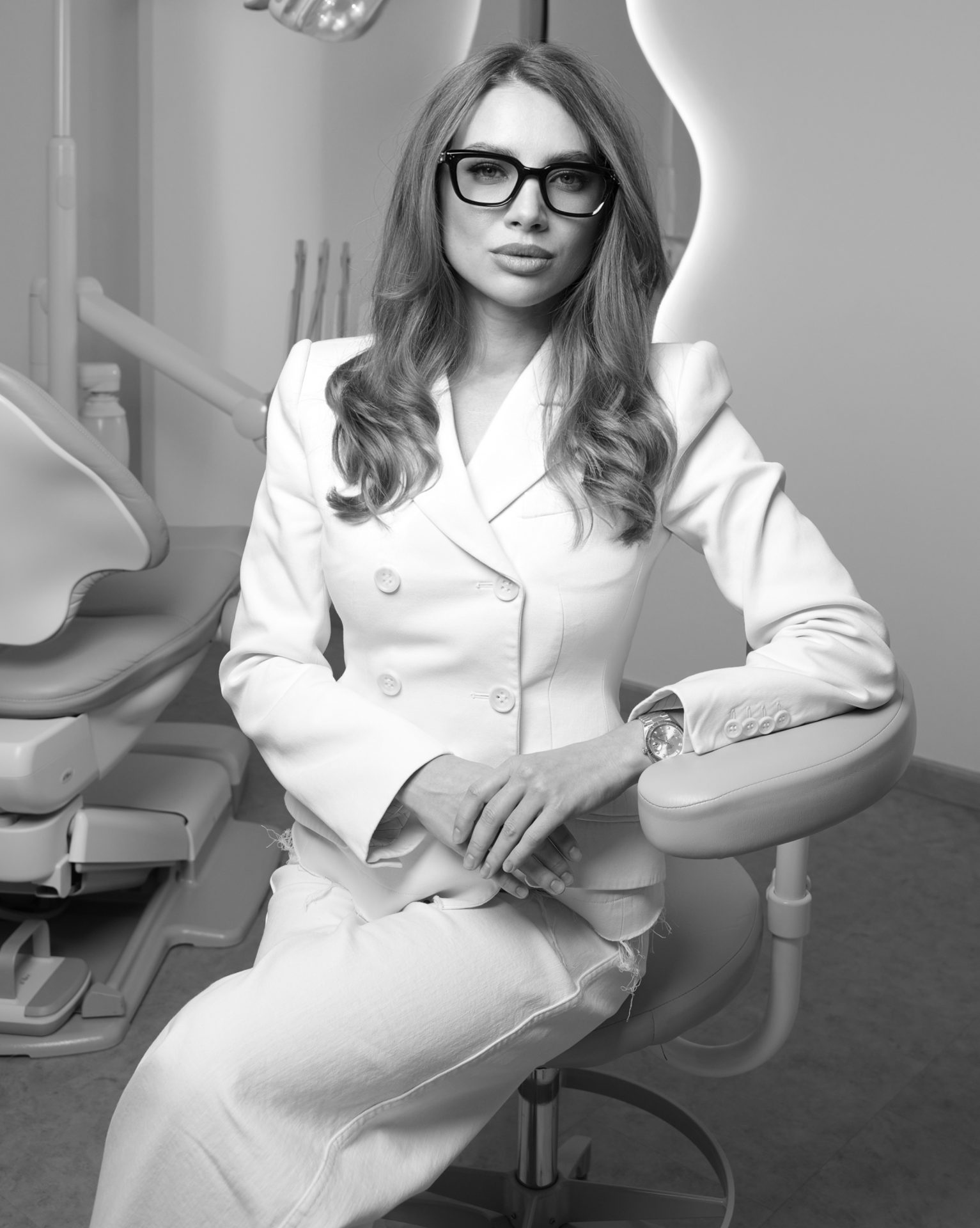
Initial consultation
The initial consultation at DentalDate begins with a detailed history. In the course of the conversation, the doctor clarifies the patient’s complaints, evaluates the dynamics of the symptoms and identifies possible causes of the disease, such as tooth loss, dentures, orthodontic correction, inflammatory processes or neoplasms.
Next, the doctor conducts an external examination, paying attention to the asymmetry of the face, the presence of swelling and swelling. Examination of the jaw at rest and in motion helps to determine the type of occlusion, bite height and amplitude of mouth opening.
Importance of initial consultation for effective treatment
The initial consultation with the dentist is a fundamental step in dental treatment, which determines the further plan of action and strategy for restoring the health of your smile. At this stage, the doctor not only assesses your oral health, but also builds a trusting relationship with you as a patient. This is the time to discuss in detail all of your complaints, concerns, and expectations for your upcoming treatment.
The importance of the initial consultation:
- Thorough Diagnosis. Using advanced diagnostic tools such as photo-protocoling and muscle palpation, the doctor gets a complete picture of your oral health.
- Individualized treatment plan. Based on the data collected, a treatment plan is created that takes into account both medical conditions, as well as your personal preferences and finances.
- Disease Prevention. Early detection of potential problems can prevent them from developing and avoid more complex and expensive treatment in the future.
The initial consultation sets the tone for the entire treatment process and is the key to its success. Your active participation and openness during this visit is critical to achieving the best possible results.


Preparing for the consultation
Being prepared for your initial consultation can greatly enhance its effectiveness and make it easier to diagnose. Here are some tips to help you make the most of your consultation time:
Make a list of questions and concerns
Before your visit, think about what questions you want to ask and what dental issues are bothering you.
Medical history
Prepare information about previous illnesses, allergies, medications you are taking, and previous dental procedures.
Oral hygiene
Just before your visit, take the time to thoroughly brush and floss your teeth so the doctor can better examine your mouth.
Attitudes towards dental treatment
If you have fears or anxiety related to dental procedures, be sure to share this information with your doctor. This will help the doctor tailor an approach to your treatment that will make you more comfortable.
Calm and positive
Keep a positive attitude. It's natural to be nervous before a visit to the dentist, but remember that the dentist is helping to improve your health.
Duration of consultation
A comprehensive consultation includes:
- Duration: 1-1.5 hours.
- Detailed photo documentation of the teeth and face – to analyze aesthetics, symmetry, and proportions.
- Palpation of the masticatory and facial muscles – assessment of muscle tone, identification of hypertonic areas, and possible compensatory tension.
Temporomandibular joint (TMJ) assessment:
- Palpation of the joints and evaluation of their mobility;
- Assessment of any clicking, movement limitations, displacement, or pain;
- Evaluation of the relationship between TMJ function, jaw position, and occlusion.
Development of individualized treatment plans with a financial estimate:
- Optimal plan — a comprehensive approach aimed at fully restoring the function of the entire stomatognathic system: correcting tooth position, balancing TMJ function, and relieving muscular hypertonicity.
- Alternative plan — an adapted option that takes into account the patient’s individual preferences and constraints (financial, time-related, and functional).
- Thorough answers to all patient questions and recommendations for further treatment.

Hidden oral problems: what you may not be noticing?
Many dental problems develop subtly and may go unrecognized until they cause serious discomfort or visible changes. Here are some common problems that you may not even be aware of:
Initial stages of dental caries
Tooth decay can begin without visible signs and symptoms. In the early stages, it may only manifest itself with a slight change in enamel color or sensitivity that is easy to miss.
Gum disease
Such as gingivitis and periodontitis, often run their course without pain. Red, swollen or bleeding gums can be early signs of problems that, without proper treatment, can lead to tooth loss.
Erosion of tooth enamel
Constant exposure to acids from food or drinks can gradually erode enamel, which often goes unnoticed until hypersensitivity or tooth discoloration occurs.
Cracks and microfractures in teeth
They may not be visible to the naked eye, but over time can cause painful sensations or lead to more serious damage.
Tooth calculus
Tartar forms from plaque that has not been removed in a timely manner. This can lead to inflammation and infections of the gums, as well as tooth loss.
Hidden infections
Infections under dental crowns, bridges, or in root canals can develop asymptomatically, but over time lead to tooth loss or the need for tooth extraction.
Doctors in the direction
All doctors













Tips for keeping your teeth clean
Keeping your teeth clean not only contributes to a beautiful smile, but is also important for your overall oral health. Regular and proper dental care can prevent many diseases, including tooth decay, gingivitis, and periodontal disease. Here are some preventative tips to help keep your teeth healthy and clean:
Regular and thorough brushing of teeth
Brush your teeth at least twice a day - morning and evening. Use a soft toothbrush and fluoride toothpaste to effectively remove plaque and protect your teeth from decay.
Use of flossing
Flossing daily helps remove food debris and plaque between your teeth and under the gumline, where your toothbrush can't reach.
Regular use of mouthwash
An antiseptic mouthwash can help kill bacteria, reduce plaque, and freshen breath.
Limit sugar and acid-containing drinks
Reducing your intake of sugary and acidic foods helps prevent tooth enamel erosion and tooth decay.
Regular dental check-ups
Visiting the dentist every 6 months for a professional cleaning and check-up helps to detect and treat oral problems in a timely manner.
Smoking cessation
Smoking greatly increases the risk of gum disease and can lead to tooth loss, so quitting the habit will greatly improve your oral health.
Maintaining a healthy diet
Consuming foods rich in calcium and phosphorus, such as dairy products, fish and nuts, helps strengthen tooth enamel and maintain healthy gums.
Adherence to proper brushing techniques
Make sure you brush your teeth correctly - the movements should be gentle, circular, covering all surfaces of the teeth. Avoid too aggressive pressure, which can damage the gums or erase the enamel.
Cost of initial consultation at DentalDate
Sign up online
Reviews
